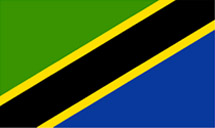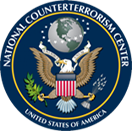The Counter Extremism Project (CEP) is a trusted partner for governments as well as nongovernmental organizations operating around the globe. From the United States to Tanzania to Pakistan to Norway to the Kyrgyz Republic to Germany, CEP pursues and supports efforts to combat and prevent extremism as well as educate policymakers, practitioners, and the public about emerging and ongoing extremist and terrorist threats. Below are some of CEP’s featured program activities.
Alternative Pathways: Rehabilitation and Reintegration for Those with Extremism-Related Convictions
To date, there exists no formal in-prison recidivism reduction nor a fully realized post-release program to support the reintegration of convicted terrorists or those with susceptibility or affiliation to violent extremist movements in American prisons. CEP developed Alternative Pathways to fill that void by bringing together renowned experts in terrorism and recidivism reduction programming. The project will design and deliver a counter-radicalization curriculum that equates to a 10-week course with accompanying workbooks. The course will be administered to inmates in classroom settings in a California prison or to those susceptible to radicalization, and individually via mail correspondence to those or convicted for terrorism-related offenses across the country. Inmates will also be connected to Alternative Pathways post-release support programming and 20 offenders will be supported as they reintegrate into society.
Partner:
 U.S. Department of Homeland Security
U.S. Department of Homeland Security
Location:
 United States
United States
Impact:
Identify important risk and protective factors that will lead to a series of publications and trainings
Establish evidence-based interventions that can be scaled nationally in the United States
State and local probation and parole authorities and communities will have access to a robust national community-led program and curriculum as well as protocol for release preparation
Returning Whole: Trauma- and CVE-Informed Support for In-Community Rehabilitation and Reintegration for Family Members of FTFs
Pulling from CEP’s expertise and in partnership with leading international and local experts and organizations, the Returning Whole program will enhance government-led, in-community reintegration and rehabilitation (R&R) efforts in Tajikistan and the Kyrgyz Republic. The program strengthens the capacity and capability of multi-sectoral stakeholders and frontline practitioners to appropriately respond to the psychosocial needs and risks of families of foreign terrorist fighters (FTFs), who are mainly women and children, already repatriated by the two countries.
Partner:
 U.S. Department of State
U.S. Department of State
Location:
 Kyrgyz Republic
Kyrgyz Republic Tajikistan
Tajikistan
Impact:
Advance the readiness and response capacity of government stakeholders, frontline practitioners, and community leaders to receive and provide psychosocial support to returning FTFs and their families in a manner that promotes long-term recovery and resilience
Integrate a trauma- and CVE-informed approach to R&R that minimizes risks and addresses root causes of radicalization in both countries, while informing the broader field of practice and contributing to furthering evidence-based R&R frameworks
Salaama: Supporting the Maldives National Reintegration Center (NRC) to provide safe and rehabilitative care of victims returning to the Maldives.
As the Republic of the Maldives prepares to repatriate, reintegrate, and rehabilitate the approximately 85 Maldivian nationals still overseas after joining Salafi jihadist groups, CEP will build the capacity of the Maldivian National Reintegration Centre (NRC) to successfully provide rehabilitative care to foreign terrorist fighters and family members returning to Maldives by formulating a systems-based, whole-of-society approach that simultaneously permits Maldivian government and civil society stakeholders to jointly establish standard operating procedures (SOPs) and programs related to childcare, rehabilitation, and reintegration as well the provision of in-community care to reduce recidivism over the long term.
Partner:
 U.S. Department of State
U.S. Department of State
Location:
 Republic of the Maldives
Republic of the Maldives
Impact:
Establish a multisectoral, multi-agency network of stakeholders most likely involved in the counterterrorism and rehabilitation and reintegration space.
Enhance knowledge concerning the design and implementation of appropriate SOPs, coordination mechanisms, and procedures to provide tailored rehabilitation services and appropriate in-community mental health and psychosocial support (MHPSS).
Develop local in-community mechanisms that advance the capacity to monitor FTF&FMs and high-risk offenders.
Develop evidence-based good rehabilitation and reintegration practices and standards that can inform the broader field of practice.
The Radicalization, Rehabilitation, Reintegration, and Recidivism Network (4R Network)
CEP, in partnership with Parallel Networks, established the Radicalization, Rehabilitation, Reintegration, and Recidivism Network (4R Network). The 4R Network will assemble a U.S. national ecosystem of actors bound by common standards to facilitate a whole-of-society approach to extremist and terrorist offender reintegration and recidivism reduction. The network will connect those tasked with the monitoring and supervision of extremist offenders to professional practitioners with expertise in reintegration and deradicalization-oriented programming, and ensure that every actor tasked with supervising extremist offenders in-prison and/or in-community has adequate knowledge and access to evidence-based support for reintegration. Law enforcement and criminal justice professionals, mental health and psychosocial support providers, P/CVE practitioners, former extremists, survivors, religious leaders, and other individuals who are interested in exploring best practices of the rehabilitation and reintegration of extremists or in considering the ways to better address the needs of convicted extremists are invited to join. For more information on how to become a member of the network, please visit the 4R Network site.
Partner:
 U.S. Department of Homeland Security
U.S. Department of Homeland Security
Location:
 United States
United States
Impact:
Promote discussions on the reintegration and rehabilitation of extremism-related offenders
Share knowledge and advance best practices related to reintegration, rehabilitation, and recidivism reduction
Foster partnerships between government and civil society to best address the needs of reintegrating extremism-related offenders

The TRACE platform
The TRACE platform aims to identify and confront contemporary threats of antisemitism and antigypsyism in the Visegrad 4 countries. It focuses on profiling key actors, groups, and networks responsible for these issues while highlighting their scale and depth through verified incidents and thorough analysis. By dispelling myths and countering disinformation with fact-based narratives, the project provides actionable recommendations for policymakers, civil society organizations (CSOs), and community-centred groups
The aim of the platform is to convey a sense that history is not detached from the present - to counter current threats is to prevent future atrocities, hate and violence being inflicted on these groups.
The platform serves as a bridge between past and present, documenting historical and modern incidents and events from 1939 to today, emphasizing the interconnectedness of these issues over time. It promotes a whole-of-society approach, combining policy, practice, and community engagement to effectively counter hate and prevent future atrocities.
TRACE stands out by addressing overlapping antisemitism and antigypsyism issues across the V4, offering a unique, integrated approach to combating hate. It fosters continuous engagement by updating users on evolving threats, ensuring its relevance as a critical resource for tackling these challenges.
TRACE is financed by the European Commission under the TOMCAT project and consists of consortium of partners: Institute for Social Safety, Counter Extremism Project, Ashoka Foundation, Memorial and Museum Auschwitz-Birkenau, Auschwitz-Birkenau Foundation, The Theresienstadt Centre for Genocide Studies project (Archaeology of Evil Research Centre), Political Capital, The Violence Prevention Network, Seesame, Centrum Komunitného Organizovania.

Virtual Event Series 2021: Violent Right-Wing Extremism and Terrorism
CEP, commissioned by the German Federal Foreign Office, analyzed the transnational connectivity of the violent extreme right-wing (vXRW) and terrorist movement in five European countries and the United States in a 2020 study. Five issue areas for further development emerged from that analysis: (1) a common understanding and legal concepts to better capture the terrorist nature of this developing threat; (2) a deeper, more nuanced understanding of the various online ecosystems that underpin and connect vXRW networks; (3) in-depth analytics concerning the financial activities and transnational commercial connections of the vXRW movement; (4) appropriate countermeasures for training activities within the vXRW movement, in particular paramilitary training; and (5) P/CVE approaches and concepts on a local, national, and transnational level, based on lessons learned. Throughout 2021, CEP hosted a series of virtual events, bringing together relevant national and multilateral policy stakeholders, to explore these issues.
Partner:
 German Federal Foreign Office (Auswärtiges Amt, Division “International Cooperation against Terrorism, Drug Trafficking, Organized Crime, and Corruption”)
German Federal Foreign Office (Auswärtiges Amt, Division “International Cooperation against Terrorism, Drug Trafficking, Organized Crime, and Corruption”)
Location:
 Europe
Europe United States
United States
Impact:
Produced a series of short reports, outlining the main operation and policy issues and including concrete policy recommendations for use by relevant policymakers
Established a starting point for sustained multilateral discussions concerning vXRW networks and how to disrupt their activities
Transnational Connectivity of Right-Wing Terrorism/Violent Right-Wing Extremism
With a commission from the German Federal Foreign Office (Auswärtiges Amt, Division “International Cooperation against Terrorism, Drug Trafficking, Organized Crime, and Corruption”), CEP analyzed the transnational connectivity of right-wing terrorism/violent right-wing extremism, culminating in the publication of the study, Violent Right-Wing Extremism and Terrorism – Transnational Connectivity, Definitions, Incidents, Structures and Countermeasures (in English and German), in November 2020. It focuses on the rise and metastasis of the violent extreme right-wing (XRW) threat and analyzes its growing transnational connectivity in the 2015-2020 period. The study centers on the transnational connections of the violent XRW milieus in six countries: Finland, France, Germany, Sweden, United Kingdom, and the United States.
Partner:
 German Federal Foreign Office (Auswärtiges Amt, Division “International Cooperation against Terrorism, Drug Trafficking, Organized Crime, and Corruption”)
German Federal Foreign Office (Auswärtiges Amt, Division “International Cooperation against Terrorism, Drug Trafficking, Organized Crime, and Corruption”)
Location:
 Finland
Finland France
France Germany
Germany Sweden
Sweden U.K.
U.K. United States
United States
Impact:
International conference conducted in the framework of the German presidency of the EU Council to discuss the violent XRW threat landscape and policy responses, with a range of EU and national government stakeholders as well as representatives from the United Nations and other international organizations
Global media coverage of report findings
Community Awareness Program for Preventing Violent Extremism in Tanzania (CAPPTAN)
CEP has partnered with the U.S. Department of State to implement its Community Awareness Program for Preventing Violent Extremism in Tanzania (CAPPTAN), an 18-month Preventing Violent Extremism (PVE) training and mentorship program. Through CAPPTAN, CEP has equipped Tanzanian civil society stakeholders with the knowledge and tools to identify and prevent the drivers of violent extremism at the local level. Partnering with organizations across Arusha, Dar es Salaam, Morogoro, Tanga, and Zanzibar, CEP has established five distinct networks of PVE-trained civil society actors—helping to foster community cohesion, resilience, and cooperation. Partner organizations now have a) the knowledge to launch their own PVE programming, and b) the qualifications to consult with the Tanzanian government and other entities on domestic violent extremism issues.
Partner:
 U.S. Department of State
U.S. Department of State
Location:
 Tanzania
Tanzania
Impact:
Fostering community resilience in five regions: Arusha, Dar es Salaam, Morogoro, Tanga, and Zanzibar
More than 60 organizations trained in community strategies to counter radicalization
Development of partner-drafted PVE recommendations to be included in Tanzania's National Action Plan for PVE
Muslim World Today (MWT)
CEP provides assistance to Muslim World Today (MWT), an outreach program focused on fostering a greater sense of tolerance and pluralism within Muslim American communities. MWT’s programming is two-pronged, combining online outreach with public events. MWT’s online platform, www.muslimworldtoday.org, combines digital storytelling, personal narratives, arts and culture news, podcasts, and video programs to advance its important message. Original content is coupled with articles aggregated from external sites that reflect MWT’s global message of tolerance and pluralism within Islam. MWT’s efforts to combine online and in-person outreach helps to develop the organization into a long-term, sustainable program.
Partner:
 US Department of Homeland Security
US Department of Homeland Security
Location:
 United States
United States Pakistan
Pakistan
Impact:
An active online community of 30,000+ users interacting with digital CVE content
Supporting more than 24 gender equality and human rights activists in Pakistan
One95
CEP has developed One95, the winning submission from the pilot Peer 2 Peer (P2P): Challenging Extremism competition, into a self-sustaining CVE counter-narrative effort. The primary goal of One95 is to highlight best practices; create materials that inform and incentivize future CVE planning and programs; and provide support to grassroots and youth-driven CVE efforts around the world. One95 has developed outreach and training materials that support CVE education. These materials can be used to incentivize and create new independent CVE programs. One95 also serves as a grantmaking organization, providing much needed financial support to grassroots CVE activists.
Partner:
 U.S. National Counterterrorism Center
U.S. National Counterterrorism Center
Location:
 Norway
Norway Somalia
Somalia U.S.
U.S. Burkina Faso
Burkina Faso Tunisia
Tunisia U.K.
U.K. Australia
Australia
Impact:
Supporting 7 of the next generation of global CVE leaders
Funding programming in 7 countries across 6 continents